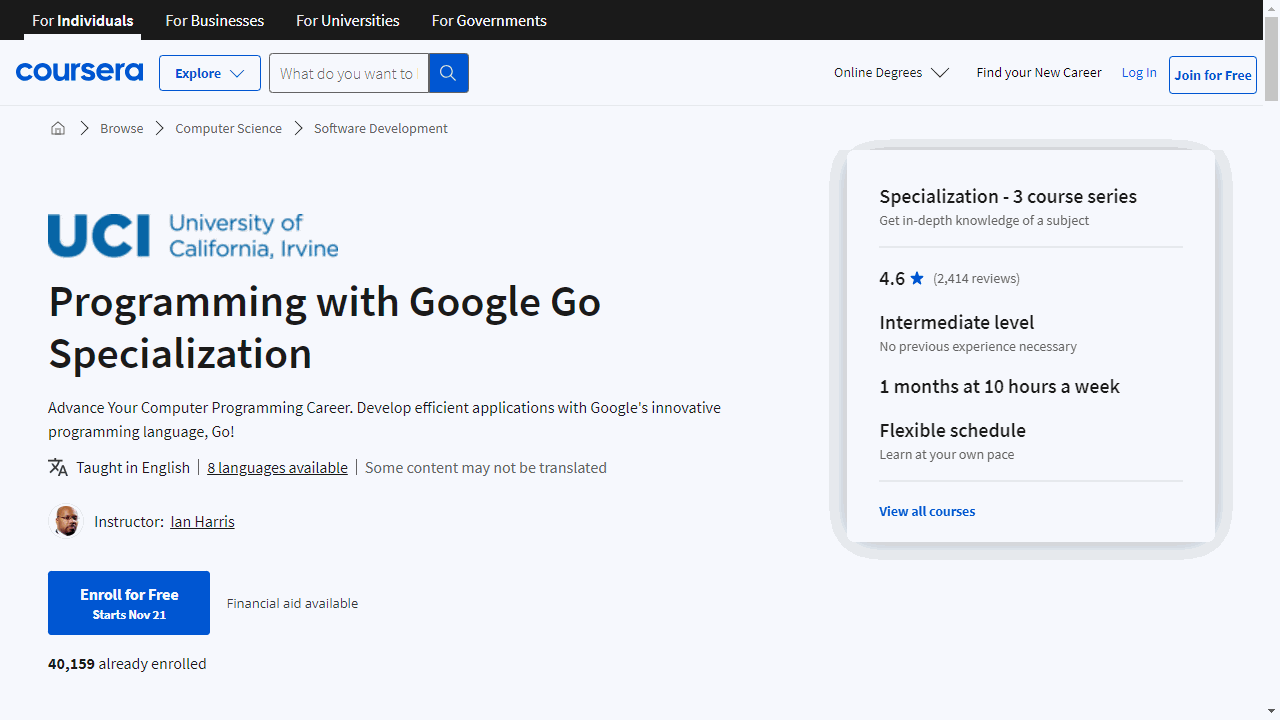Learning Go can be a powerful step in your coding journey, opening doors to efficient and scalable development.
But finding the right course can feel overwhelming, with so many options available.
If you’re searching for a comprehensive and well-structured learning experience on Coursera, the “Programming with Google Go Specialization” by the University of California, Irvine is a great choice.
The Specialization is considered the best overall due to its practical approach and hands-on projects.
You’ll build real-world Go applications, mastering key concepts like functions, methods, interfaces, and Go’s unique approach to concurrency.
This hands-on learning ensures you not only understand the theory but also gain practical experience.
While this Specialization is an excellent starting point, other options on Coursera can cater to different needs and preferences.
Read on to explore other top-rated Go courses and discover the one that best aligns with your learning style and goals.
Programming with Google Go Specialization
Provider: University of California, Irvine
This series of courses introduces you to Go, a programming language developed by Google that emphasizes simplicity and efficiency.
Let’s break down what each course has to offer.
The journey begins with “Getting Started with Go.”
This course is tailored for those who have some programming experience, making the transition to Go smoother if you’re already familiar with languages like C, Python, or Java.
You’ll learn the fundamentals of Go, including data types and how to work with protocols and formats such as RFCs and JSON.
The interactive aspect of writing and refining Go programs with peer feedback is a standout feature, ensuring that you’re not just passively learning but actively engaging with the material.
Moving on to “Functions, Methods, and Interfaces in Go,” you’ll delve deeper into Go’s capabilities.
This course focuses on functions and methods, which are crucial for writing clean and efficient code.
You’ll also explore how Go handles object-orientation, a concept familiar to many programmers but with a unique twist in Go.
The practical experience gained from developing your own Go applications is invaluable, reinforcing the concepts covered in the lessons.
Lastly, “Concurrency in Go” introduces you to one of Go’s most powerful features: concurrent programming.
Understanding how to write concurrent code is essential in today’s fast-paced computing environment.
Through hands-on exercises, you’ll learn about goroutines and channels, the building blocks of concurrency in Go.
This knowledge is particularly useful for creating responsive applications that can handle multiple tasks simultaneously.
When you finish, you’ll have a strong grasp of Go and its concurrent programming model, setting you up for success in a field where performance and efficiency are highly valued.

